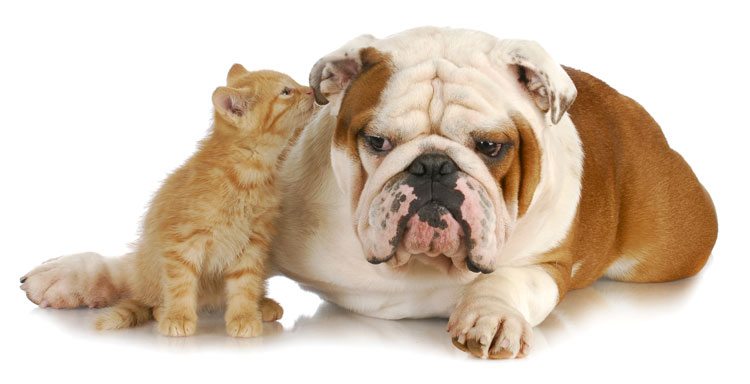Babies
Congrats to adding to your family! Pregnancy, birthing, and nutritional information after birth can be a lot to keep up with. We’ve got you covered. In addition to bringing them in to see us, we have some tips for the new babies in your life!
Kittens
Isn’t it just so fun to have a new kitten at home? Once you’ve gotten past the cuteness of the situation, we’re here to help you with the important medical decisions that come next!
First up, vaccinations!
8 Weeks
First Kitten Vaccinations (FVR)
First Deworming
12 Weeks
Booster Kitten Vaccination (FVR)
Leukemia Test and Vaccination (FeLV)
Rabies Vaccination
Second Deworming
16 Weeks
Booster kitten vaccination (FVR)
Booster Leukemia Vaccination (FeLV)
4-6 Months
Spay or Neuter

Each year thereafter for your cat’s lifetime, it will need boosters on its vaccinations, as well as a yearly deworming
The Kitten vaccination (FVR), also known as a distemper vaccination, is one injection that protects your cat against three very common and serious diseases, viral rhinotracheitis, calicivirus, and panleukopenia. As shown in the above recommended schedule, kittens need to receive this injection at least twice with the second dose being at or after 16 weeks of age. Thereafter, a booster one year from the last vaccine, and then every three years to maintain protection.
The Feline Leukemia Virus vaccination (FeLV) is an injection that protects your cat against the incurable and fatal disease, feline leukemia. As shown in the above recommended schedule kittens need to receive this injection twice. Once at about 12 weeks and once at about 16 weeks. A booster one year from the last vaccination, and then discuss with your veterinarian on further need.
The Rabies vaccination is an injection that protects your cat against the fatal disease rabies. This vaccination is required by law as humans can contract rabies. Your cat will need an initial injection at 12 weeks, a booster one year from the initial, and thereafter every other year for his or her life.
Information on the Feline Birth Process
Puppies
Isn’t it just so fun to have a new puppy at home? Once you’ve gotten past the cuteness of the situation, we’re here to help you with the important medical decisions that come next!
6 Weeks
First Puppy Vaccination (DHPP)
First Deworming
8 Weeks
Booster Puppy Vaccination (DHPP)
12 Weeks
Booster Puppy Vaccination (DHPP)
Lepto Vaccination
Rabies Vaccination
Second Deworming
16 Weeks
Booster Puppy Vaccination (DHPP)
Booster Lepto Vaccination
Bordetella (Kennel Cough)
Consult with your veterinarian for the best age to spay/neuter your puppy

Each year thereafter for your puppy’s lifetime, it will need boosters on its vaccinations, as well as a yearly deworming
The Puppy vaccination (DHPP), also known as distemper parvo shot, is one injection that protects your puppy against the serious and often fatal diseases, distemper, hepatitis, parvovirus, and parainfluenza. As the above recommended schedule shows, puppies require a series of these injections beginning at 6–8 weeks of age and continuing every four weeks until the puppy is at least 16 weeks of age. Thereafter, a booster is needed one year from the last vaccine and then every three years to maintain protection.
The Lepto vaccination, also known as leptospirosis, is an injection that protects your dog from disease caused by infection with the Leptosira bacteria. As shown above, puppies need to receive this injection twice. Once at around 12 weeks and once at around 16 weeks. Yearly boosters are needed to maintain protection.
The Rabies vaccination is an injection that protects your puppy against the fatal disease rabies. This vaccination is required by law as humans can contract rabies. Your puppy will need an initial injection at 12 weeks, a booster one year from the initial, and thereafter every other year for his or her life.
Heartworm Prevention in Wyoming is recommended from May through October each year. Our doctors advise the use of Heartgard as a monthly prevention during the mosquito season. If your dog was not on heartworm prevention during the previous year we strongly recommend a blood test is done before beginning prevention with Heartgard.
So You’re Going to Have Puppies
Let’s get you prepared.
